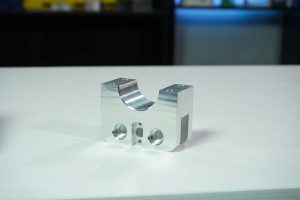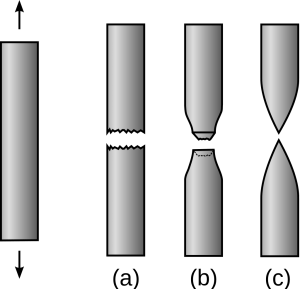Introduction to Delrin
Delrin, a trademark of DuPont for an acetal resin polymer, is prominently recognized for its high tensile strength, stiffness, and dimensional stability. Its resistance to moisture, solvents, and other chemicals makes it an ideal choice for precision parts in high-performance engineering applications. Commonly, Delrin finds extensive use in gears, bushings, bearings, rollers, and fittings. These characteristics render it invaluable across a vast range of industries including automotive, consumer electronics, and industrial manufacturing, where components require both durability and precise operation.
Chemical Composition and Structure of Delrin
Delrin, also known as Polyoxymethylene (POM), possesses a molecular makeup characterized by the repetitive CH2O units, forming long chains with high crystallinity. Its structure is defined by alternating carbon and oxygen atoms connected through single bonds, giving it a dense and stable backbone. This ordered arrangement contributes to Delrin’s remarkable physical attributes such as high tensile strength, stiffness, low friction, and excellent dimensional stability. The durability and resistance to wear are directly related to the tight molecular packing, resulting in its widespread use where components demand precision and longevity without lubrication. Additionally, the material’s resilience to chemical interactions makes it an ideal candidate for parts exposed to harsh environments, evidencing how the intrinsic molecular structure dictates performance.
Mechanical Properties of Delrin
Delrin, a homopolymer acetal resin, is distinguished by its high tensile strength and resilience which enables it to absorb cyclic stresses, making it an excellent choice for precision parts subjected to constant operation. Its inherent impact resistance and durability support components in maintaining form and functionality even under demanding conditions. In the context of gears and bearings, Delrin’s mechanical characteristics facilitate smooth operation by reducing friction while providing the necessary toughness to endure prolonged usage without significant wear. This reliable performance can be attributed to Delrin’s ability to resist deformation and maintain structural integrity over a wide range of temperature and load variations.
Thermal Properties of Delrin
Delrin, a type of acetal resin polymer, exhibits remarkable heat resistance and thermal stability that make it an ideal material for components requiring resilience in high-temperature environments. Its melting point lies around 175 degrees Celsius (347 degrees Fahrenheit), which ensures maintenance of shape and function up to this temperature threshold. Due to these properties, Delrin is frequently employed in the manufacture of kitchen appliance parts such as gears and safety interlocks, where consistent performance at varying temperatures is imperative. This utilization highlights Delrin’s ability to withstand the demands of thermal processing, securing its place in applications demanding durability against heat exposure.
Chemical Resistance of Delrin
Delrin, a polyoxymethylene (POM) thermoplastic, is characterized by its high resistance to a variety of chemicals and solvents. Its stability in the presence of hydrocarbons, alcohols, esters, and many other organic compounds makes it suitable for applications within chemical environments. However, strong acids and oxidizing agents can compromise its structural integrity. For instance, when exposed to acidic cleaning solutions, Delrin may experience degradation, affecting its mechanical properties. The material’s resilience in fuel systems or solvent-handling components illustrates its robustness in industrial uses where long-term exposure to certain chemicals is expected. Manufacturers often select Delrin for parts that require durable performance amidst aggressive substances, though its specific interactions should always be evaluated concerning the exact chemical environment in question.
Electrical Properties of Delrin: Insulation Capabilities and Static Buildup
Delrin, known for its high strength and stiffness, also exhibits excellent electrical insulating capabilities. This thermoplastic’s inherent low dielectric constant makes it an effective insulator in various electronic applications where preventing current leakage is crucial. However, due to its low electrical conductivity, Delrin tends to accumulate static electricity on its surface, which can attract dust or cause electrostatic discharge (ESD) in certain conditions. To mitigate this risk, specialized grades of Delrin are developed with antistatic additives that reduce the potential for static buildup without significantly compromising the material’s insulation properties.
Machinability and Fabrication of Delrin
Delrin, a trademarked acetal resin engineered by DuPont, is renowned for its high machinability which allows for efficient cutting, drilling, and shaping to create precise and intricate parts. The thermoplastic’s natural lubricity and dimensional stability enable the production of tight tolerance components without significant degradation of tooling. An excellent example of its application resides in the plumbing industry, where custom fittings require not only precision but also durability and compatibility with various fluids. Delrin’s ability to be easily fabricated makes it an optimal material for such custom solutions, ensuring reliability in complex systems.
Hygroscopic Nature of Delrin
Delrin, a polyoxymethylene thermoplastic, exhibits noticeable hygroscopic characteristics, meaning it has the propensity to absorb moisture from its environment. The water absorption rate of Delrin is an important factor, given that absorbed moisture can lead to dimensional changes and could potentially influence mechanical properties such as tensile strength, rigidity, and impact resistance. This absorption tends to cause expansion within the material, which might result in size alterations capable of affecting precision components where tolerances are tightly controlled. Additionally, with increased moisture content, there may be a decrease in the overall stiffness of the component, leading to potential compromise in functionality under load-bearing applications.
Environmental Stability and Degradation of Delrin
Delrin, a thermoplastic polymer, exhibits inherent UV resistance which allows it to withstand sunlight exposure to some extent. However, prolonged outdoor usage can lead to degradation over time. Factors such as climatic conditions, presence of ozone, and environmental pollutants play a significant role in determining the durability of Delrin when used outside. Although chemically stable, its mechanical properties may be affected by constant UV radiation, resulting in changes in color, loss of tensile strength, and eventually brittleness. To counteract this, additives or protective coatings are often employed to extend the lifetime of Delrin components that are destined for long-term exposure in outdoor environments.
Aesthetic Qualities of Delrin
Delrin, known for its engineering applications, possesses aesthetic attributes that lend versatility to its use in visible components. The material is inherently available in a range of colors including black, white, and a variety of hues; however, it can also be custom colored to meet specific design requirements. Beyond color customization, Delrin provides a spectrum of surface finish options from matte to glossy, ensuring products achieve the desired appearance. For example, a high-gloss finish could be utilized for consumer product interfaces where tactile feel and visual appeal are paramount, while a matte finish might suit industrial parts where reflections are undesirable.
Regulatory Compliance and Safety of Delrin in Food Contact and Medical Applications
In assessing the regulatory compliance and safety attributes of Delrin, it is pivotal to consider its suitability for food contact and medical-grade applications. Delrin adheres to the FDA (Food and Drug Administration) requirements for use in the food industry, signifying that it can safely be used for kitchen appliances, food processing gears, and packaging components without leaching harmful substances. Furthermore, certain grades of Delrin are deemed apt for medical applications due to their biocompatibility, conforming to standards like ISO 10993 required for materials to be non-toxic, sterilizable, and suitable for repeated use without adverse effects on patients. The material’s inherent flammability ratings also reflect rigorous compliance with safety benchmarks such as UL 94, which ensures that Delrin-based products demonstrate a specific degree of resistance to ignition and flame propagation in electrical devices and various other consumer goods.
Comparison with Other Engineering Plastics
Delrin, a homopolymer acetal, stands out among engineering plastics for its superior frictional properties and excellent dimensional stability, providing distinct advantages over alternatives like nylon. Delrin exhibits lower moisture absorption compared to nylon, which ensures better consistency in both mechanical and electrical properties under humid conditions. This low absorption rate also contributes to Delrin’s outstanding wear resistance, making it an ideal choice for gears, bearings, and other components subject to continuous motion. When selecting materials for specific applications, engineers might favor Delrin when they need a balance of strength, rigidity, and toughness at moderate temperatures, paired with minimal expansion due to moisture exposure. The selection criteria often take into account the operating environment, contacting surfaces, and desired lifespan of the component, leading to scenarios where Delrin’s unique characteristics can be leveraged to provide reliable and long-lasting solutions.



